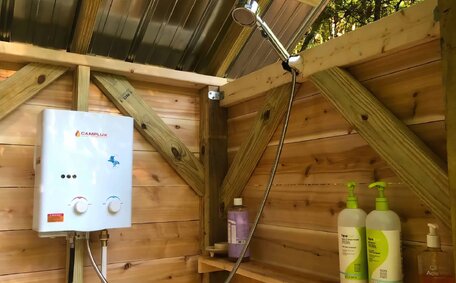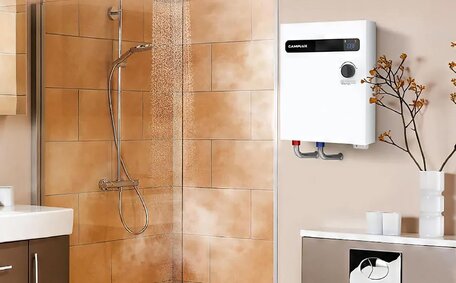Introduction to Eco-Friendly Drain Cleaning
Amidst heightened awareness about environmental and health impacts, many homeowners are searching for eco-friendly alternatives to unclog pipes. These solutions address blocked drains effectively without the risks associated with hazardous chemicals.
Traditional cleaners contain corrosive chemicals that can damage pipes and emit noxious gases. In contrast, natural drain cleaners utilise safe, everyday substances like baking soda, vinegar, and enzymes to clear blockages without compromising safety.
In this article, we’ll explore a variety of methods for tackling blocked drains using common household items, offering cost-effective solutions for kitchen and bathroom blockages, as well as maintenance tips to help prevent future issues.
Embracing natural drain cleaning solutions helps keep your home’s plumbing in top condition and address clogs responsibly, safeguarding the environment. Discover practical techniques for eco-friendly drain clearing free from harmful toxins.
Understanding the Harmful Effects of Harsh Chemical Drain Cleaners
Choosing natural remedies for drainage issues skilfully sidesteps these hazards, providing a gentler and equally potent answer.
Accidental exposure to caustic chemicals in sink drains can lead to severe burns and the fumes released can be dangerously toxic, posing serious health risks.
Eco-friendly alternatives, like dish soap or hydrogen peroxide, efficiently clear drains and are safer for the environment, avoiding the pollution of waterways and harm to aquatic life that harsh chemicals like sodium hydroxide, notorious for damaging plumbing and disrupting septic systems, can cause.
Research indicates that eco-friendly drain solutions are significantly milder on the environment than their chemical counterparts, negating the introduction of toxins into your home and the broader ecosystem.
Natural Household Remedies for Clearing Clogs
Many household items already in your kitchen or bathroom make excellent natural drain cleaners. Among the most effective options for manoeuvring through minor clogs is the application of white vinegar and a cup salt solution:
Baking soda helps break down organic materials, while vinegar dissolves soap scum and grease. For a natural clogged drain solution, introduce one cup baking soda down drain swiftly followed by a similar amount of vinegar to combat the blockage. Baking soda helps break down organic materials, while vinegar dissolves soap scum and grease.
Then, carefully pour hot water down the drain to help your drain clear and rinse away any loose debris.
Heating water to a rolling boil can assist in dissolving blockages. After employing the pot boiling method, allow the passage to clear, then follow up with a flush of cool water to ensure the drain is free of debris.
Proceed to drain hot water clear through the pipes and repeat if necessary for stubborn blockages.
Try using a plunger on the sink drain, applying forceful plunging motions to expel the clog, and conclude with a rinse of hot water. Seal overflow holes with damp cloths for better suction and to ensure the efficient flow of water down the drain.
Leveraging natural cleaning products you already possess is an inexpensive and eco-friendly strategy to restore free-flowing drains. Patience may be required, as stubborn clogs could need multiple treatments to clear completely.
Baking Soda and Vinegar
Combining baking soda and vinegar creates a simple but highly effective drain cleaner. When baking soda mixes with vinegar, a chemical reaction occurs producing carbon dioxide gas. The fizzing and bubbling action helps dislodge clogged materials and propel them down the pipes.
To treat a clogged drain, begin by pouring half a cup of baking soda followed by half a cup of vinegar down the drain. Immediately seal it with a stopper or cloth to trap the reaction, allowing it to sit for 5-10 minutes and work on breaking up the blockage.
The baking soda’s abrasive quality effectively scrubs away buildup, while vinegar works to dissolve stubborn residues. This duo forms a trusted natural drain opener, serving as a safe substitute for corrosive chemicals.
Boiling Water
You can use the simple act of pouring boiling water down the drain as a steadfast eco-friendly approach to clear minor clogs. The heat helps liquefy and cut through grease blockages while the force of the water helps dislodge debris.
For this method, pour boiling water down the drain immediately after it simmers on the stove. Allow it to work for a few minutes, then flush the drain with cool water to ensure it is clear.
Carefully dispense water then monitor to prevent the accumulation that frequently leads to clogs. It’s also an inexpensive and non-toxic solution.
Plunger
Sometimes a wire hanger, straightened and formed into a hook, can be a simple, eco-friendly tool to snag and pull up clogs. To use a plunger, place it firmly over the drain opening and plunge up and down rapidly 10-15 times. This creates suction that helps dislodge blockages. For best results, after pouring hot water down, try to plug any overflow holes in the sinks bathtubs drain with towels to achieve an airtight seal. After plunging, flush with hot water to wash away loosened debris. To use a plunger, place it firmly over the drain opening and plunge up and down rapidly 10-15 times.
A plunger is a safe and straightforward tool on how to use for clear blockages without impacting people, pets, and the environment negatively. With proper technique, a plunger can be an instrumental tool in clearing blocked sinks and drains throughout your home. It’s one of the first solutions to try for unclogging drains in an eco-friendly way.
It’s also extremely affordable and easy to use.
Enzyme Cleaners
Enzyme-based drain cleaners utilise natural bacteria or enzymes to break down and dissolve organic materials that cause clogs. Ecological remedies not only clean your drain systems but do so by utilising benign bacterial strains.
Enzyme cleaners, apt in multiple plumbing scenarios, can help break down hair blockages without corroding pipes or releasing harmful vapours akin to a baking soda vinegar mixture. They are safe for any plumbing systems you may have, including PVC pipes and septic tanks. Natural enzymes in these solutions are gentle on drainage systems, sidestepping any detriment to intricate wastewater infrastructure.
Once poured down drains, the natural enzymes begin to eat away at the obstructions. The natural ingredients sit at least one hour, continually working over time to fully clear obstructions. With regular monthly use, enzyme cleaners also help keep future clogs at bay by keeping drains free of buildup.
Opting for enzyme drain cleaners over chemical alternatives benefits your drain and promotes a natural drain cleaner ethos. The natural bacteria help break up waste without producing pollution. Enzyme drain cleaner formulas offer a green solution to keep your drains free-flowing.
Eco-Friendly Commercial Products
A range of commercial drain cleaner products exist that champion natural ingredients over harsh chemicals. I would highly recommend products like Green Gobbler and Earthworm that feature bacteria and enzymes to digest organic materials clogging drains. Davis Drain Maintainer makes use of a proprietary concoction that’s designed to clear clogged conduits.
I found Biokleen Bac-Out was very effective for kitchen bathroom cleaning, employing live cultures to dissolve grease, fat oils, and soap buildup.
Natural enzyme cleaners from brands like Bio-Clean olutions without toxic chemicals.
Choosing these green products over conventional drain openers significantly benefits the environment. Moreover, these enzyme-steeped cleaner products are gentle on pipes and septic systems. Overall, green commercial drain cleaners offer a safe, effective m>
Use Drain Strainers
Fit strainers over all drain openings to catch hair, food scraps, and other debris before it can go down the pipes. Clean strainers regularly to remove buildup.
Flush with Hot Water
Once a week, flush drains with hot water to mrbage Disposal
Your garbage disposal efficiently grinds up food scraps, preventing waste that drains your kitchen sink. Dispose of food scraps here rather than the trash.
Vigilance in small drain maintenance tasks can prevent major clogs and safeguard the drains within your home. Employing eco-friendly approaches ensures you take care of both your sinks and the planet.
Regular drain maintenance is key to avoid costly clogs and clear your plumbing, ensuring smooth operations. Here are some eco-friendly tips for preventive drain care:
Fit strainers over all drain openings to catch hair, food scraps, and other debris before it can go down the pipes.
Once a week, flush drains with hot water to melt and wash away accumulations of grease and soap scum. This helps keep pipes clear.
Avoid Harsh Chemicals
Strainers and Screens
Installing drain strainers and screens is an effective eco-friendly method to stop debris from entering and clogging pipes. Strainers with small perforations fit inside sink drains to catch food scraps, hair, and other particles. Screens attach around shower and tub drains to trap hairs and lint before they accumulate.
Following these instructions to clean the types regularly helps maintain clear passages.
Strainers and drain screens provide a physical barrier to catch gunk while allowing water to pass through freely. Follow these eco-friendly drain hot maintenance routines to preserve your drain and free it of organic matter, significantly reducing the occurrence of blockages. By stopping debris from even entering the plumbing system, you can avoid toxic drain cleaner chemicals.
Select strainers and screens crafted from recycled materials to ensure the durability of your drainage systems. The initial investment pays off since they last for years and greatly help to clear blocked pipes and reduce drain clogs. Easy to install and maintain, strainers and screens are a simple eco-friendly addition to prevent plumbing problems.
Garbage Disposals
Garbage disposals provide an eco-friendly way to handle food waste and keep drains clear. They grind up scraps into tiny particles that easily wash down pipes instead of clogging them. Food and even ice cubes are pulverised by a high-speed spinning disc inside the disposal unit.
Using a garbage disposal reduces the amount of organic waste sent to landfills and helps unblock your drains. Many wastewater treatment plants can properly process these additional materials.
Through the sewer system, food scraps are better managed by disposals than ending up in trash bins. To prevent clogging and ensure smooth drainage, dispose only small amounts of suitable waste, and avoid items like eggshells, fibrous vegetables, and rice, which can accumulate in large quantities.
Routine Flushing
A weekly routine of pouring hot water into drain passage is a simple yet effective method to help prevent clogs. Allowing boiling water to run through pipes helps or splashing.
Let the hot water sit for a few minutes to soften any buildup before rinsing with cold water to drain keep clear. Aim to cast 2-3 cups boiling water through each drain on a weekly cycle for upkeep. The heat melts and loosens gunk while the flow of water whisks it away.
Studies suggest that using drain maintenance techniques like flushing with hot water can reduce clogs by up to 70%. Unlike chemical drain cleaners, hot water won’t damage pipes or contaminate the environment. It’s an inexpensive and non-toxic method to maintain clear, flowing drains.
When to Call a Professional Plumber
While numerous minor blockages can be alleviated with natural, DIY methods, enlisting a professional plumber may be essential to unblock drain thoroughly.
If you’ve tried several home remedies but the clog persists, a professional may be needed. Plumbers come equipped with resources like a drain snake that can unblock your drain without the need for harsh chemicals and was very successful in reaching blockages beyond the average person’s ability to clear. They can also use high-pressure jetting if simple snaking doesn’t work.
For drains that keep getting clogged no matter what you try, a plumber can inspect the pipes to check for issues like tree root invasion or a collapsed line. They can provide solutions to completely resolve the problem.
Plumbers are capable of utilising their expertise to clear blocked drains in main sewer lines that prevent drainage from the entire house. Professionals have the right equipment to locate and clear obstructions in outdoor waste lines.
If you experience backing up of multiple drains or toilets at once, call a plumber immediately since this indicates a main line blockage.
While DIY methods may be ideal for minor sink or tub clogs, professional help is often needed for persistent or serious drain blockages. At Cranebrook Plumbing, we use the latest tools and techniques to diagnose and clear all types of drain obstructions throughout Sydney homes and businesses, delivering top-tier plumbing services.
Call us on 1300 349 338 for comprehensive plumbing solutions delivered by our very professional team, featuring expert drain cleaning and repairs.






